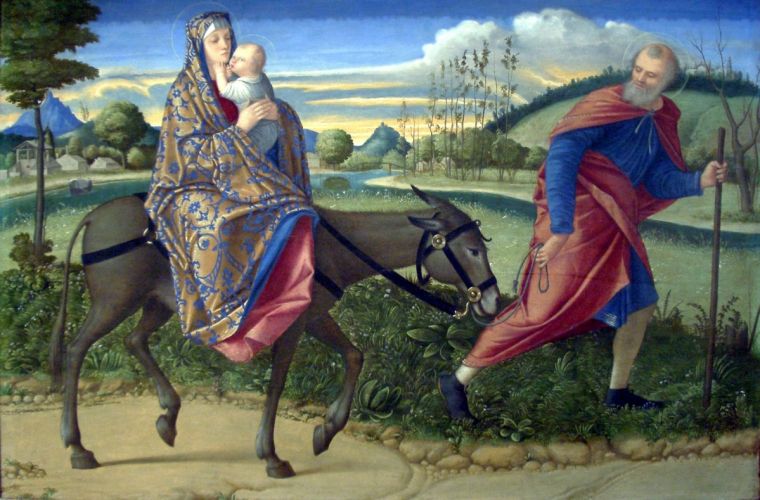Why Did The Holy Family Flee Into Egypt?

One of the most terrible stories in the Bible is that of the slaughter of the innocents in Bethlehem after the birth of Jesus. It's just one verse in Matthew's Gospel (2:16) but it contains a world of tragedy. Herod has learned about the infant Jesus from the Magi and recognises the threat the child poses to his regime. He orders the children killed – perhaps not a large number, but a dreadful thing, and one entirely in keeping with the actions of an extremely bloodthirsty ruler.
Before this, though, the Holy Family has escaped and gone to Egypt. But why Egypt, and what can we learn from their flight?
The borders of Egypt were only around 100 miles away from Bethlehem in a straight line. Another hundred miles would bring them to the river Nile in the heart of the kingdom. Egypt at this time was part of the Roman Empire and had a stable, well-run government. More to the point, it had large colonies of Jews, notably in the city of Alexandria. Of its 300,000 people, up to two-fifths were Jews. So Mary and Joseph would have been able to fit in with the community, Joseph would have been able to find work and they would have been safe from Herod.
The second reason they went has less to do with history and more to do with theology. Matthew tells us (2:15): "And so was fulfilled what the Lord had said through the prophet, 'Out of Egypt I called my son.'" The "prophet" is Hosea and the reference is to the first verse of chapter 11 of his book. They don't refer there to the exile of the family, but to Israel's long sojourn in Egypt before they were brought out by Moses.
But Matthew uses this bringing "out of Egypt" to Israel as a pattern for Jesus' return to Judaea: he too would enter into the Promised Land from Egypt, as the embodiment of a new Israel. He would get right in his own person what God's people through the ages had got wrong.
There is an early Church legend about the Flight into Egypt. The story is that the family was waylaid by robbers on the way to Egypt and the robber chief wanted to kill them and steal their possessions. But another of the thieves, named Dismas, refused to allow any harm to come to them. He looked at Jesus and said: "O most blessed of children, if ever there come a time for having mercy on me, then remember me, and forget not this hour." And Dismas was the thief on the cross who asked Jesus to remember him when he came into his kingdom.
It's only a legend, but the story does tell us two things. First, it speaks to us of the providence of God and the great unfolding of his salvation history as Jesus fulfilled his appointed task. But second, it speaks straight into our world today, in which millions of people are refugees, fleeing with only what they can carry, poor, hungry and traumatised. They are not always kindly received in the nations where they seek refuge. But 2,000 years ago they were Mary, Joseph and Jesus, and perhaps we should look to see their faces today.
Follow Mark Woods on Twitter: @RevMarkWoods











